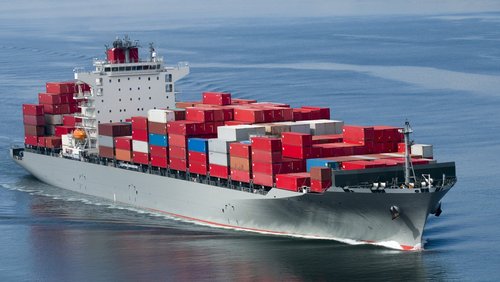While the establishment of international value chains has created wealth on a global scale, globalization has recently come under pressure. Trade distortions caused by Chinese intervention into markets and protectionist measures in several countries have worsened the political environment for free trade.
GTIPA Perspectives: Global Value Chains After the COVID-19 Crisis
Article of the Global Trade and Innovation Policy Alliance (GTIPA)

While the establishment of international value chains has created wealth on a global scale, globalization has recently come under pressure. Trade distortions caused by Chinese intervention into markets and protectionist measures in several countries have worsened the political environment for free trade.
Integrated regional supply chains or new technologies that reduce cost advantages of global production can lead to a market-based re-organization of supply chains. The COVID-19 crisis also raised the issue of security of supply, as restrictions on international supply chains may have contributed to the economic downturn during the crisis.
Diversification of supply, reshoring, and stockpiling are relevant objectives, for which companies may be willing to pay a price. measures. Governmental provision of supply in the event of a global crisis may also be considered for very specific products—such as crude oil reserves. However, political intervention to force or to deeply subsidize reshoring has the potential to significantly reduce the wealth-creating effect of the global division of labor. Leveraging global value chains can often balance supply risks and help reduce costs. Security of supply should be managed by considering a range of options and costs at the company level. If global supply chains are utilized effectively, they can provide both wealth through the division of labor, competition, and a high level of security at the same time
Hubertus Bardt / Stephen Ezell / Tomas Flores / Natalia González / Chris Hattingh / Sean Randolph / Giacomo Bandini: Global Value Chains After the COVID-19 Crisis
Article of the Global Trade and Innovation Policy Alliance (GTIPA)

GTIPA Perspectives: Global Value Chains After the COVID-19 Crisis
Link to Global Trade & Innovation Policy Alliance (GTIPA)

Handel mit Globalem Süden: Deutschland stagniert, China und Russland expandieren
China dominiert den Handel mit den wichtigsten Ländern des Globalen Südens. Zwischen 2019 und 2023 stieg der Handel Chinas mit dem Globalen Süden stark um 47 Prozent auf über 1,9 Billionen US-Dollar an, sodass die EU und die USA als wichtigste Handelspartner ...
IW
Not so Different?: Dependency of the German and Italian Industry on China Intermediate Inputs
On average the German and Italian industry display a very similar intermediate input dependence on China, whether accounting for domestic inputs or not.
IW